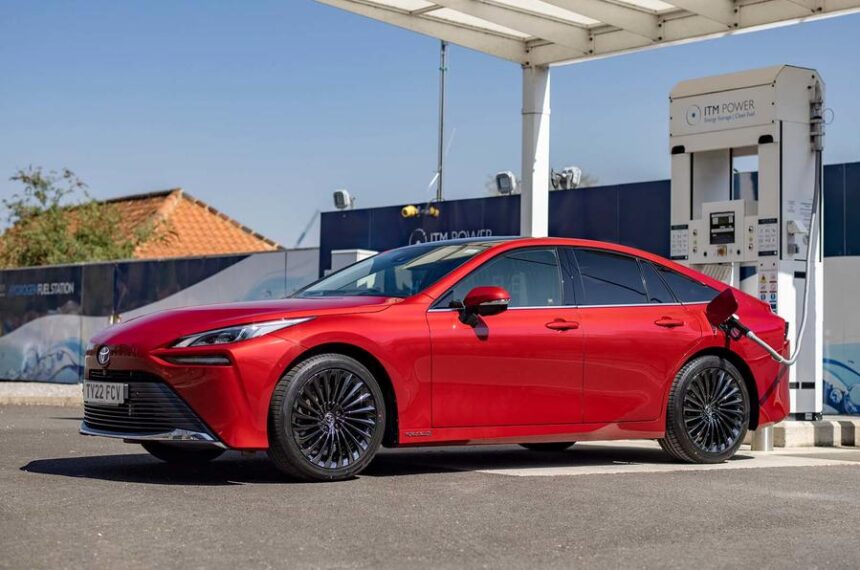Hydrogen cars are often praised for their efficiency, with the ability to use between 40-60% of the fuel’s energy and achieve a 50% reduction in fuel consumption. These vehicles can travel around 400 miles on a single tank, making them a practical choice for long-distance journeys.
One of the advantages of hydrogen cars is that their range is not impacted by outside temperatures, unlike electric vehicles.
Drawbacks of hydrogen cars
While hydrogen cars offer benefits to drivers, there are also some drawbacks to consider.
Although hydrogen cars have zero emissions at the tailpipe, the process of producing hydrogen on an industrial scale poses significant environmental challenges. It is estimated that 10kg of CO2 is produced for every kilogram of hydrogen generated using fossil fuels.
While there are methods to produce hydrogen using renewable energy sources, such as wind or geothermal power, these processes are currently more expensive.
Furthermore, the complexity of hydrogen cars contributes to their high purchase price, and the limited number of refueling stations presents a barrier to widespread adoption.
The future of hydrogen vehicles
Despite the current challenges, the UK government’s investment in hydrogen vehicles aims to accelerate their development and availability to the public.
Companies like Williams Advanced Engineering are at the forefront of hydrogen vehicle innovation, with plans to introduce a cutting-edge platform for hydrogen electric vehicles in 2023. This platform boasts an impressive H2 fuel-cell system and a liquid-cooled battery pack capable of delivering up to 576bhp.
As technology continues to advance and infrastructure for hydrogen vehicles improves, we may see a shift towards greater adoption of this modern transportation option in the years to come.





